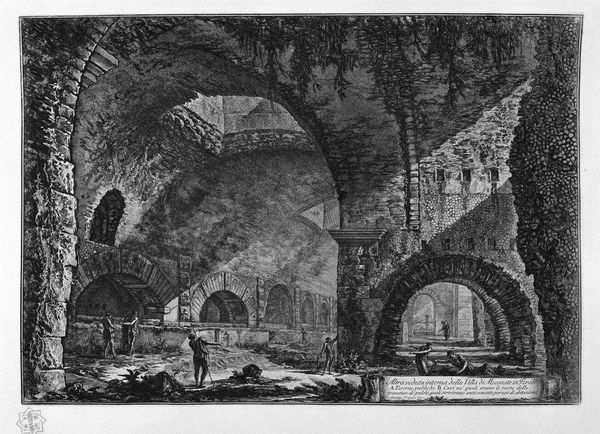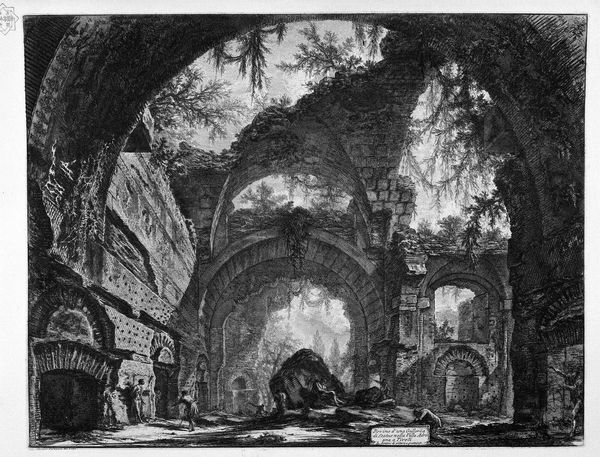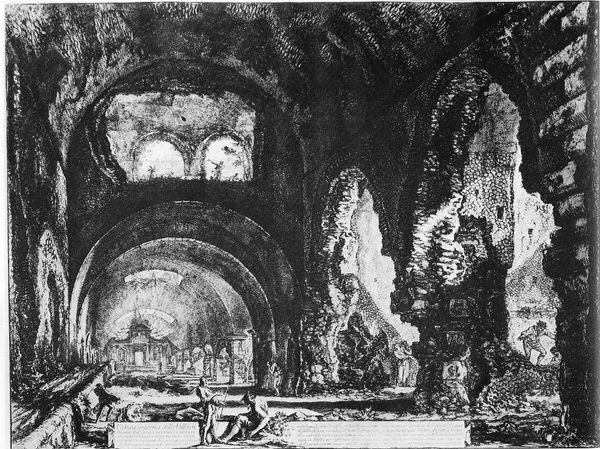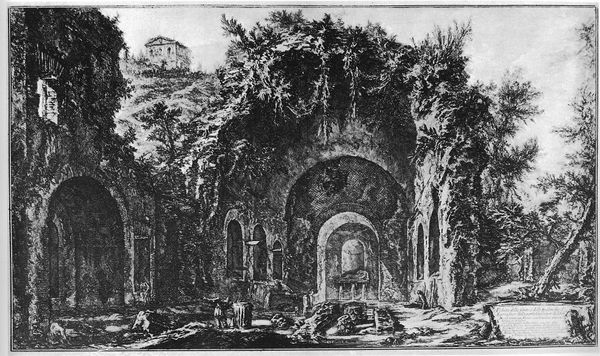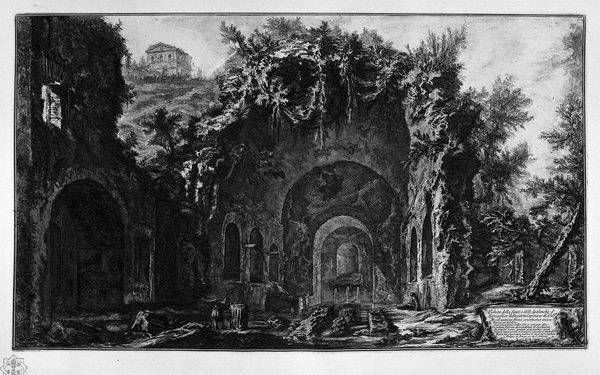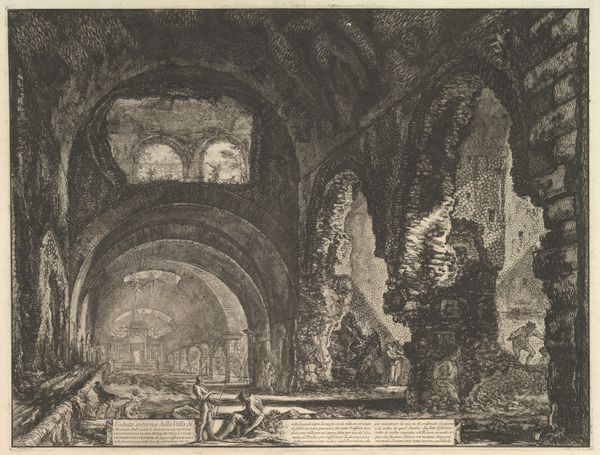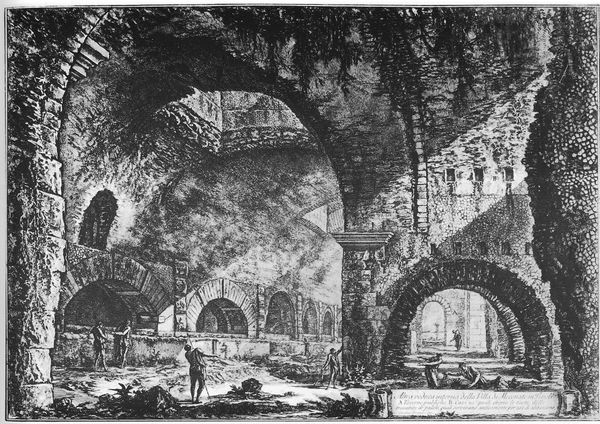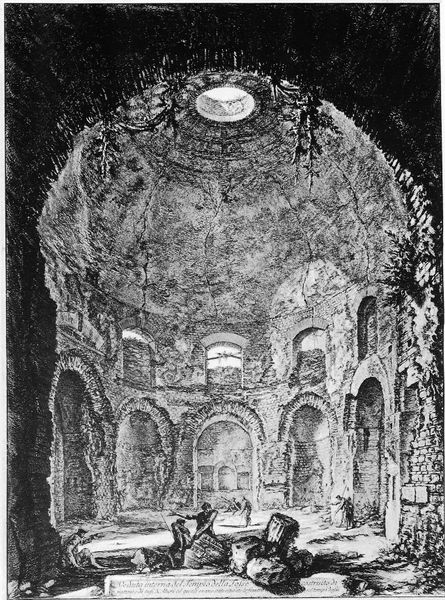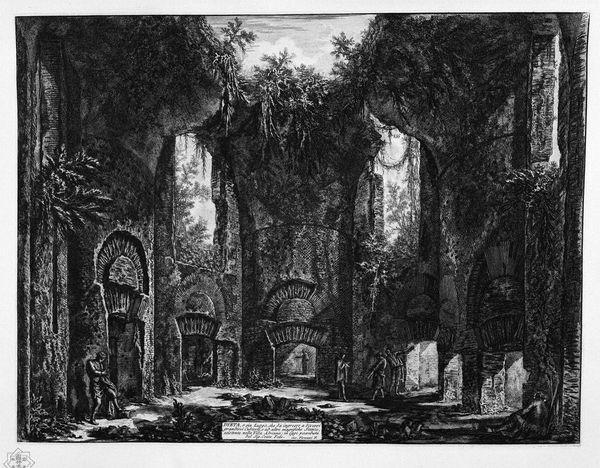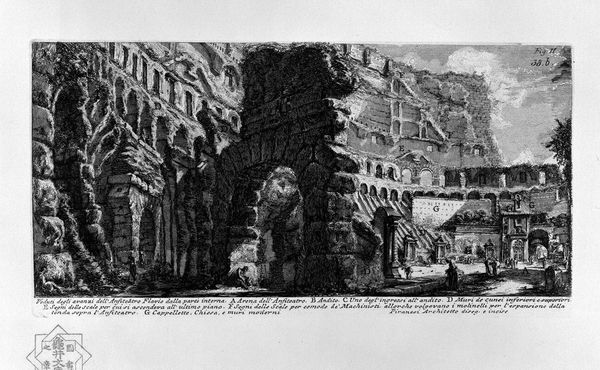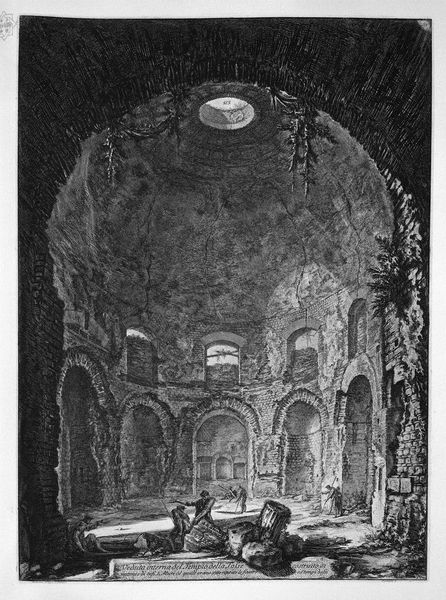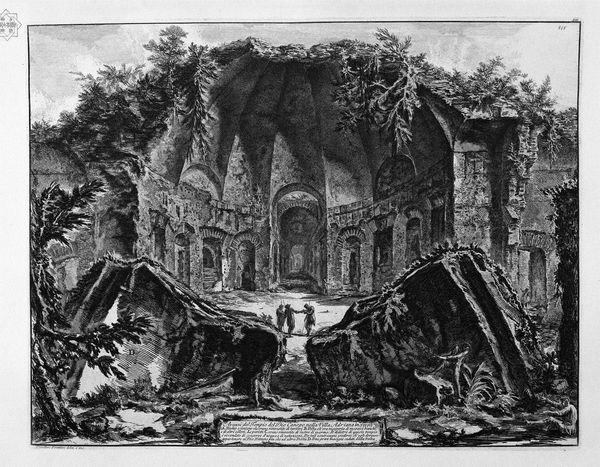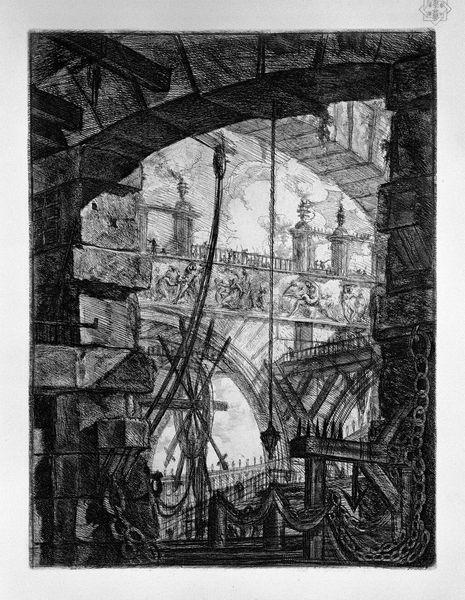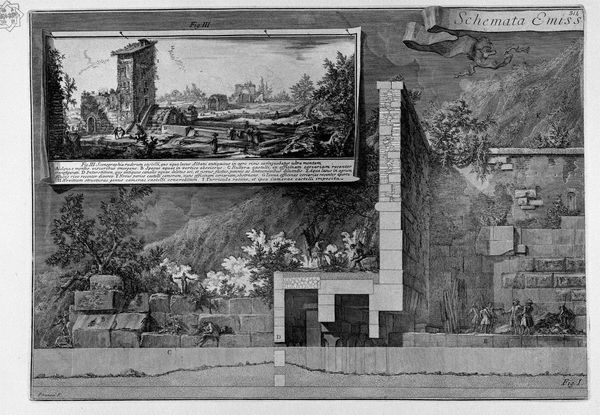
engraving, architecture
#
carving
#
romanesque
#
carved
#
line
#
cityscape
#
history-painting
#
natural texture
#
engraving
#
architecture
Copyright: Public domain
Editor: So, this is "Interior view of the Villa of Maecenas" by Giovanni Battista Piranesi. It’s an engraving of some architecture that I find immediately striking. It feels very ruinous, like time is just swallowing everything up. What catches your eye? Curator: The cyclical nature of power. Here we have Piranesi, in his own time, looking back at Roman grandeur through the lens of decay. What survives? Not the monuments themselves, but the *idea* of them, etched in the collective memory, in the *language* of architecture. The arches, tell me, what do they suggest to you? Editor: Endurance, maybe? But also that something’s missing, you know? They don’t seem to be holding anything up anymore. Curator: Precisely! The absent weight, the implication of something lost, invites the viewer to fill the space, doesn’t it? It evokes the power once held within those walls, now a ghost. And these small human figures… Are they excavating, exploring, or something else? Editor: I guess…maybe they're finding beauty in the remnants? Is Piranesi suggesting that even in ruin, there’s something valuable to be found? Curator: Perhaps, but consider: by depicting the Villa in a state of decay, is he also commenting on the inevitable fate of empires? Is it hubris to imagine permanence when all symbols are destined to be reinterpreted or forgotten? Editor: That's a darker read than I initially had, but I see your point. It's like the image is layering time on top of itself. It's powerful. Curator: Indeed. These images can echo across centuries. Editor: Thanks! I learned a lot by just slowing down and taking another look.
Comments
No comments
Be the first to comment and join the conversation on the ultimate creative platform.
